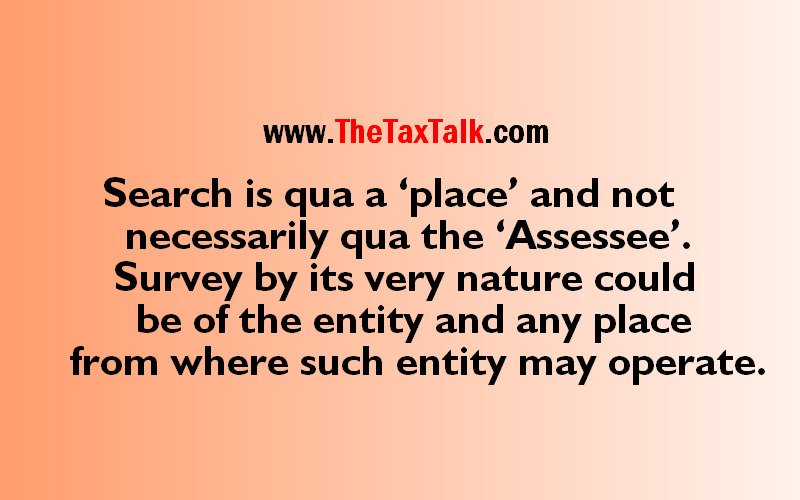![]()
Search is qua a ‘place’ and not necessarily qua the ‘Assessee’. Survey by its very nature could be of the entity and any place from where such entity may operate.
This was the observation of Orissa High Court in the case of Shiva Cement Limited & Ors Vs DIT(Inv) Bhubaneshwar & Ors
The issue involved was as to whether there can be common search warrant and Panchnama where two assessees are operating from the same place and whether there can be simultaneous search and survey operations simultaneously in respect of same assessee.
The Orissa High Court in this case was considering various contentions of the writ petitioners which included the above questions as well as the issue that on the basis of materials available on record, the authorisation which was issued for search was illegal. The court however noted that in case the assessee had not filed returns for a number of years and thus that itself could have been sufficient ground for issuance of search warrant u/s 132(1)(c) and there was no need for the department to have issued summon u/s 131 for issuing search warrant u/s 132 of the Act.
Prima facie, that there is nothing in either in Section 132 or 133A of the Act that prohibits the Department from undertaking a survey of an entity exclusive to one location of its operations, whereas it may have credible information for search as regards the operations in another location. Search is qua a ‘place’ and not necessarily qua the ‘Assessee’. Survey by its very nature could be of the entity and any place from where such entity may operate. It is perfectly possible that while conducting survey and search of the premises of an entity, for which an authorisation has been issued, the Department can come across material pertaining to some other person or entity. The provisions of Section 153C deal with contingencies like these.
The court also noted Section 292C of the Act to accept the argument of the department that there could be common search warrant for two assessees.
Thus, the writ of the assessee was dismissed.
Non-filing of the return of income can be fatal to the assessee and it can even lead to search and thus all assessees should file the return within due date and time. This is one important point from this judgement.
The copy of the order is as under :

